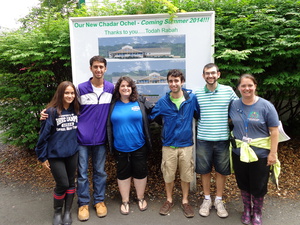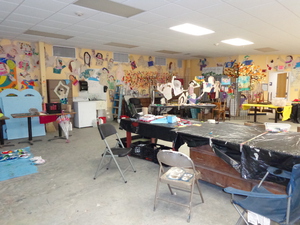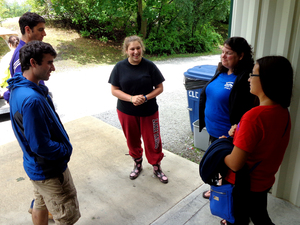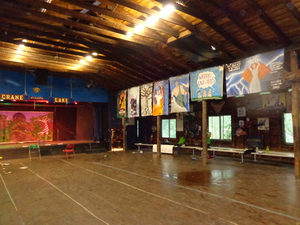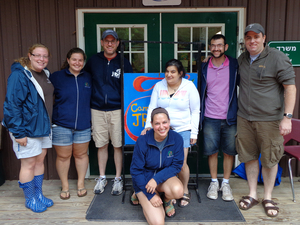
During their two-day visit at Camp
JRF, the supervisors from
Crane Lake Camp were impressed with the level of Judaism incorporated into
every part of the day. The visit included tours, program observations, and
plentiful conversations with campers and staff. Ultimately, the Crane Lake
supervisors left JRF with creative ideas for Jewish programming (and other parts of camp), and they're exciting to host their own visitors, from
Berkshire Hills Emanuel Camp, next Friday.
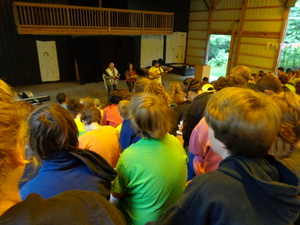
Twice daily, the entire JRF community participates in services, but they
only occasionally look like the services that you might find in a synagogue. Frequently
musical or arts-based, the JRF staff and visiting faculty work creatively to
find non-standard ways for campers to connect with Judaism, and our hosts
mentioned several types of activity-centered services from the past few weeks.

When the Crane
Lake supervisors
interviewed campers and staff members about their favorite parts of camp, Jewish
values camp up frequently. JRF bases its program on seven core Jewish values,
which are then incorporated into all parts of camp life. In fact, they even
wrote a catchy song (with seven entire verses) to remember all of the
values, which the campers have sung at meals. This focus on values allows all of camp to align the intentionality of the various programs and activities.
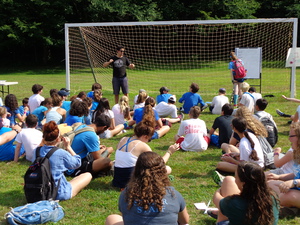
On the first day of Crane
Lake's visit, the JRF
campers were deeply involved in an Israel-themed maccabiah competition. The night before, they'd
begun learning about five of Israel's
most prestigious universities, and the next morning they "took
classes" at the various universities by competing in medical,
technological, artistic, and legal-based challenges. Later, they made
decorations for their chosen university, and took a series of college exams
(above) before finally graduating at the end of the evening.
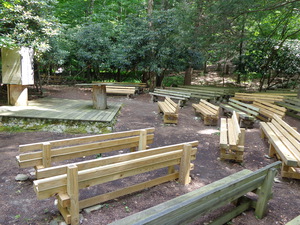
Most of JRF's program areas are open on at least two sides, proving a
nature-based experience for campers even in more education-based programs.
Their Shabbat service location (above) is particularly beautiful, surrounded by
forest and overlooking the camp lake. JRF also has a few trails, used for day
hikes and overnight camping, and it is currently
building a new 72-bed "eco-village" unit.
As the visit ended today, the Crane Lake visitors were excited to bring back the new ideas that they'd found, and they left the JRF staff members discussing the newly-gained perspective on their program. Stay tuned to read all the details of next week's visit to Crane Lake Camp!

